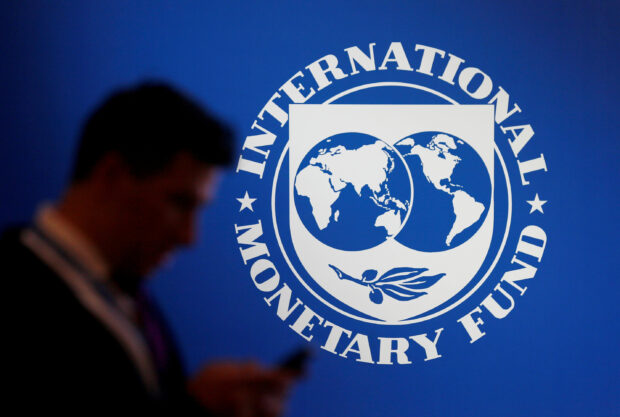
PARIS – President Macron is hosting a summit in Paris this week to discuss the reform of the world’s multilateral finance institutions in response to climate change and other development challenges. The summit will focus on the suggestions put forth by a group of developing countries, led by Barbados and known as the ‘Bridgetown Initiative’.
The main demands of the Bridgetown Initiative are as follows:
1. Liquidity support: UN member states should expedite the transfer of $100 billion in ‘Special Drawing Rights’ (SDRs), which are reserve currency, to programs that support climate resilience and provide subsidized lending to low-income countries. Additionally, the International Monetary Fund (IMF) should temporarily suspend surcharges imposed on heavily indebted borrowing countries for two to three years. The enhanced access limits set during the COVID-19 pandemic for emergency financial support instruments, such as the Rapid Credit Facility (RCF) and Rapid Financing Instruments, should also be reinstated.
2. Debt sustainability: G20 creditor countries should revise their Common Framework for debt restructuring of poor countries in default. This would involve accelerating debt relief talks and allowing middle-income countries to access it. To incentivize investments in climate adaptation, the IMF should promote the restructuring of unsustainable debt in a consistent manner across countries and modify the way it evaluates debt. Furthermore, both public and private creditors should include disaster clauses in lending agreements to allow countries to allocate debt payments towards disaster relief. They should also refinance high-interest and short-term debt with credit guarantees and longer maturities.
3. Private capital: To encourage private sector investment in projects that facilitate the transition to a low-carbon economy in developing countries, the IMF and multilateral development banks should provide $100 billion per year in currency risk guarantees. Additionally, they should expand their support to help countries generate a pipeline of viable projects and explore blended finance and other structures where public lenders undertake more project risk.
4. Development lending: The G20 and other shareholders of the World Bank, IMF, and development institutions should fully implement the 2022 recommendations made by a panel of experts to increase lending by multilateral development banks. They should allocate an additional $100 billion per year in fresh capital to these institutions and transfer Special Drawing Rights capital to multilateral development banks, starting with the African Development Bank by September 2023. The leveraging of the World Bank’s International Development Association should be enhanced, and its emergency support facility should be fully funded to $6 billion by the end of 2023. The funding for the International Development Association should also be scaled up to $279 billion. It is important to raise the access limits to concessional finance through the Poverty Reduction and Growth Trust and the Resilience and Sustainability Trust. Eligibility for funding should be assessed based on a country’s vulnerability, and low-cost, 50-year loans should be provided to support investments in areas such as climate resilience, water security, pandemic preparedness, and renewable energy. The process for countries to apply for loans should be simplified and harmonized, with additional support provided.
5. Trading: International trading groups, including the World Trade Organization, should collaborate with governments to strengthen supply chains, making them more resilient and beneficial to countries that produce raw materials. They should also prioritize the protection of vulnerable populations.
6. Governance: The governing structure and operation of International Financial Institutions, which are primarily dominated by richer nations in the Global North, should be revised to make them more inclusive and equitable.
Implementing these measures will be crucial in revitalizing the global finance agenda and addressing the challenges posed by climate change and development issues.
Your subscription could not be saved. Please try again.
Your subscription has been successful.
Read Next
Don’t miss out on the latest news and information. Subscribe to INQUIRER PLUS to access The Philippine Daily Inquirer and over 70 other titles, share up to 5 gadgets, listen to the news, download articles as early as 4 AM, and share them on social media. Call 896 6000. For feedback, complaints, or inquiries, contact us.
!function(f,b,e,v,n,t,s) {if(f.fbq)return;n=f.fbq=function(){n.callMethod? n.callMethod.apply(n,arguments):n.queue.push(arguments)}; if(!f._fbq)f._fbq=n;n.push=n;n.loaded=!0;n.version=’2.0′; n.queue=[];t=b.createElement(e);t.async=!0; t.src=v;s=b.getElementsByTagName(e)[0]; s.parentNode.insertBefore(t,s)}(window,document,’script’, ‘https://connect.facebook.net/en_US/fbevents.js’); fbq(‘init’, ‘2004610026278274’); fbq(‘track’, ‘PageView’);
!function(f,b,e,v,n,t,s) {if(f.fbq)return;n=f.fbq=function(){n.callMethod? n.callMethod.apply(n,arguments):n.queue.push(arguments)}; if(!f._fbq)f._fbq=n;n.push=n;n.loaded=!0;n.version=’2.0′; n.queue=[];t=b.createElement(e);t.async=!0; t.src=v;s=b.getElementsByTagName(e)[0]; s.parentNode.insertBefore(t,s)}(window, document,’script’, ‘https://connect.facebook.net/en_US/fbevents.js’); fbq(‘init’, ‘767727496894134’); fbq(‘track’, ‘PageView’);
!function(f,b,e,v,n,t,s) {if(f.fbq)return;n=f.fbq=function(){n.callMethod? n.callMethod.apply(n,arguments):n.queue.push(arguments)}; if(!f._fbq)f._fbq=n;n.push=n;n.loaded=!0;n.version=’2.0′; n.queue=[];t=b.createElement(e);t.async=!0; t.src=v;s=b.getElementsByTagName(e)[0]; s.parentNode.insertBefore(t,s)}(window, document,’script’, ‘https://connect.facebook.net/en_US/fbevents.js’); fbq(‘init’, ‘607491687857238’); fbq(‘track’, ‘PageView’);
Denial of responsibility! SamacharCentrl is an automatic aggregator of Global media. In each content, the hyperlink to the primary source is specified. All trademarks belong to their rightful owners, and all materials to their authors. For any complaint, please reach us at – [email protected]. We will take necessary action within 24 hours.

Omprakash Tiwary is a business writer who delves into the intricacies of the corporate world. With a focus on finance and economic landscape. He offers readers valuable insights into market trends, entrepreneurship, and economic developments.

